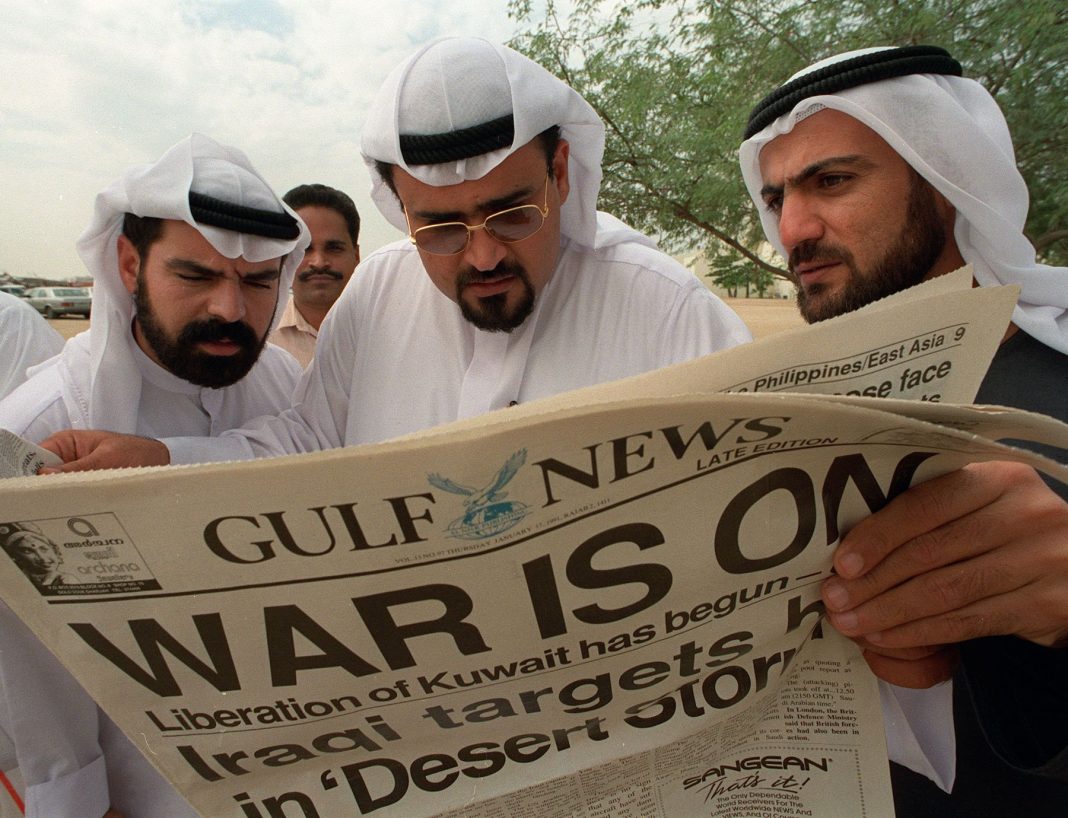In a joint statement on Sunday, the Iraqi ministries of defence and interior called on anyone who has information about graves of missing persons inside Iraq or Kuwait to come forward.
“A reward will be allocated to those who provide useful information that helps us reach tangible results,” said the statement published on X, formerly Twitter, without announcing how much the reward would be.
Efforts to find the remains of missing persons killed during the 1991 Persian Gulf War have been ongoing since the conflict ended.
The Tripartite Commission and its Technical Sub-Committee were established in 1991 and 1994, respectively, to find answers for hundreds of families in Iraq and Kuwait.
The committee is chaired by the International Committee of the Red Cross (ICRC) and composed of representatives of Iraq, Kuwait, Saudi Arabia, the United States, the United Kingdom, and France. The United Nations Assistance Mission for Iraq (UNAMI) joined in 2014 as an observer.
The issue of people missing as a result of the Persian Gulf War is still a focal point of contention between the two neighbouring countries, whose diplomatic ties were severed after the Iraqi invasion of Kuwait.
Relations were restored after former Iraqi leader Saddam Hussein was removed from power in 2003 after another US-led invasion.
According to previous figures from the ICRC, only 215 Kuwaitis and 85 Iraqis who were missing have been found, mostly in southern Iraq.
Kuwait has announced its number of missing people is 320, while Baghdad says more than 5,000 Iraqis remain unaccounted for since the end of the war.
Iraq announced in February 2017 that Kuwait received the remains of about 300 prisoners who were held in the country.
In August 2019, Iraq handed over the remains of 48 Kuwaiti prisoners killed in the war. Their remains were exhumed from mass graves in Iraq.
The Kuwaiti soldiers had been taken prisoners by Saddam’s forces and appeared to have disappeared after they were moved to the desert near Samawa in Iraq, according to the ICRC.
In February last year, Iraq completed a payment of $52.4bn to compensate individuals, companies and governments who proved damages from its 1990 invasion and occupation of Kuwait, the United Nations reparations body said at the time.
The sum was ordered paid to Kuwait by the UN Compensation Commission, set up by the UN Security Council, after the seven-month occupation of Kuwait and the US-led defeat of Saddam’s troops in the Persian Gulf War. Kuwait has received a portion of proceeds from Iraqi oil sales for the past 30 years.
The Iraqi ministries directed people with information on graves to share with Iraqi embassies and consulates or a hotline number, and provided an email for the defence ministry’s directorate of human rights.
The statement also included numbers for the Iraqi ministry of foreign affairs, the ICRC in Baghdad, the Kuwaiti embassy in Baghdad, and Kuwaiti consulates in Basra and Erbil.
